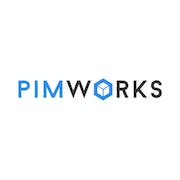Are you tired of searching for the right product information scattered across multiple systems? Do you find it frustrating trying to keep all your digital assets in one central location? As businesses become more digitized, the amount of product information and digital assets has also increased. The need for an effective product information management (PIM) solution has become a necessity. With a PIM system, your business can achieve streamlined workflows, better data accuracy, and much more. This buyer's guide aims to provide you with valuable insights on what to look for in a PIM software solution, so you can make the right choice for your business.
What is PIM Software
PIM software, or Product Information Management software, is a powerful tool that allows businesses to manage and store all their product information in one central location. PIM software provides a single source of truth for product information, making it easier to update and distribute information across multiple channels, including e-commerce platforms, marketplaces, and social media. Here are some common use cases for PIM software: - Catalog Management: PIM software can be used to create and manage product catalogs, including product descriptions, images, and marketing copy. - Data Enrichment: PIM software can be used to enrich product data by adding product attributes such as color, size, and SKU numbers, to help customers find what they are looking for. - Channel Management: PIM software can be used to manage and distribute product information across multiple channels, such as e-commerce websites, marketplaces, social media platforms, and mobile apps. - Localization: PIM software can be used to manage product information in multiple languages, making it easier to expand into new markets. - Supplier Management: PIM software can be used to manage supplier information and collaborate with suppliers on product data. PIM software is used by a range of companies, including those in the retail, manufacturing, and wholesale industries. Any business that has a large product catalog and needs to manage product information across multiple channels can benefit from PIM software. Large e-commerce retailers and marketplaces, in particular, benefit greatly from the use of PIM software to manage their vast product catalogs. In conclusion, PIM software provides a centralized solution for managing product information, improving process efficiency, and streamlining product data. By using PIM software, businesses can ensure consistency in their product messaging, reduce errors and rework, and provide customers with accurate and up-to-date product information.
Benefits of PIM Software
Product Information Management (PIM) software is a powerful tool for businesses that need to manage and distribute complex product information across multiple channels. In today's fast-paced business landscape, customers expect accurate and up-to-date product information, and PIM software makes it easy to provide this information quickly and efficiently. PIM software is vital for businesses because it provides a centralized platform to manage product information, which can help increase operational efficiency, reduce errors and inconsistencies, and improve customer satisfaction. Here are some of the key benefits of PIM software: - Centralized Management: By consolidating all product information into one centralized platform, PIM software allows businesses to easily manage product data, such as descriptions, images, and pricing. - Improved Data Quality: With PIM software, businesses can ensure that product information is accurate and up-to-date across all channels, which helps to reduce errors and inconsistencies, and improves overall data quality. - Streamlined Product Publishing: PIM software enables businesses to easily publish product information across multiple channels, such as websites, marketplaces, and social media, which helps to increase visibility and reach more customers. - Enhanced Cross-selling and Up-selling: By allowing businesses to create product bundles, promotions, and cross-selling opportunities, PIM software can help increase sales and revenue. - Better Customer Experience: PIM software enables businesses to provide customers with accurate and up-to-date product information, which helps to improve the overall customer experience and increase customer satisfaction. In summary, PIM software is essential for modern-day businesses because it provides a centralized platform to manage product information, improves data quality, simplifies product publishing, enhances cross-selling and up-selling, and ultimately, delivers a better customer experience.
Features of PIM Software
Product information management (PIM) software is a powerful solution that enables businesses to centralize, manage, and distribute product information across multiple channels. A good PIM system can help organizations improve their product data accuracy, reduce time to market, and enhance customer experience. Here are 10 common features of PIM software that can have a positive impact on your business: 1. Centralized product data management: PIM software allows businesses to store all product data in one centralized system, making it easy to manage and update. 2. Advanced data modeling: PIM software often includes advanced data modeling capabilities that enable businesses to define complex product structures, attributes, and relationships in a structured and organized way. 3. Data enrichment: PIM software provides tools for enriching product data with additional information such as images, videos, descriptions, and translations. 4. Data quality management: PIM software includes data quality tools that can help businesses ensure their product data is accurate, complete, and compliant with industry standards. 5. Channel-specific data output: PIM software allows businesses to output product data specific to each channel, whether it be print, ecommerce platforms, or social media. 6. Workflow management: PIM software can help businesses manage product data workflows, including product creation, review, approval, and publishing, ensuring that everyone is working on the latest and most accurate information. 7. Collaboration: PIM software enables collaboration between teams, departments, and even external vendors, ensuring that product information is accurate and up-to-date, no matter where it comes from. 8. Analytics and reporting: PIM software provides powerful analytics and reporting capabilities, enabling businesses to gain insights into their products’ performance, adjust strategies accordingly, and make informed decisions. 9. Integration capabilities: PIM software integrates seamlessly with other applications such as ERP, CRM, and ecommerce platforms, allowing for a streamlined and efficient workflow. 10. User-friendly interface: PIM software provides an intuitive and user-friendly interface that makes it easy for employees to manage product information, even if they have no technical background. In conclusion, PIM software is an invaluable tool for businesses that want to improve their product data management, streamline their workflows, and enhance their customer experience. With these common features in mind, businesses can select a PIM solution that aligns with their unique needs and goals.
Considerations of PIM Software
Product Information Management (PIM) software is an essential tool for businesses that need to manage a large amount of product data efficiently. PIM software provides a centralized platform for managing and organizing product information, making it easier for businesses to create, maintain and publish product catalogs across multiple channels. When purchasing PIM software, businesses should consider several factors to ensure that they are getting the right solution for their needs. 1. Scalability: Businesses should consider the size of their product catalogs and whether the PIM solution can handle the data quantity required. As your business grows, your product catalog will expand and so should your PIM solution. A scalable solution offers the flexibility to increase the amount of information stored in the PIM system without compromising performance. 2. Integration: The PIM solution should integrate seamlessly with your existing technology stack, including your e-commerce platform, ERP, and other relevant systems. A well-integrated PIM solution can reduce the time and complexity of manually importing and exporting data between systems, improving accuracy and efficiency. 3. Data Quality: The PIM solution should feature robust data quality controls, ensuring that inconsistencies, errors, and duplications are minimized, making sure the data is accurate, complete and up-to-date. High-quality data helps to avoid lost sales, improved customer satisfaction, and increase productivity. 4. Customization: Your PIM system is a crucial element that manages your most valuable asset. Customization options should be available so that it can be tailored to your specific needs. Customization of the system reduces the number of manual processes, which translates into greater accuracy, time savings, and management efficiencies. 5. User Experience: The PIM solution should be easy to use with a user-friendly interface, which is essential when multiple teams are working with the platform. Users want to have a platform that they can navigate efficiently and without much technical knowledge. This ensures that the solution is adopted throughout the organization, making it a valuable asset. In conclusion, businesses should consider the scalability, integration, data quality, customization and user experience when purchasing PIM software. A well-implemented PIM solution will help businesses manage product information more efficiently, improve customer experience, and increase sales.
Software Trends for PIM Software
Product Information Management (PIM) Software is rapidly evolving, and in 2023, we can expect to see several major trends emerge. First and foremost, we can expect these solutions to become more cloud-based, with an increasing number of vendors offering Software-as-a-Service (SaaS) platforms. Another significant trend is the rise of AI-powered PIM software, which will allow businesses to automate routine tasks and improve the quality of product data. Machine learning algorithms will analyze data across multiple sources and automatically enrich data sets with accurate information, so businesses can quickly react to market changes and provide accurate information to their customers. We can also see the emergence of unified commerce platforms, allowing businesses to manage product information across multiple channels, including e-commerce platforms, mobile devices, and social media. Such solutions provide real-time data insights from various sales channels, allowing companies to identify trends, increase efficiencies, and optimize their digital marketing strategies. Finally, we could see an increased focus on data security and compliance, with PIM providers increasingly focusing on ensuring the privacy and protection of customer data. In conclusion, PIM software will become even more essential to businesses in 2023 and beyond, with growing trends in cloud-based software, AI-powered solutions, unified commerce platforms, and enhanced security measures.









